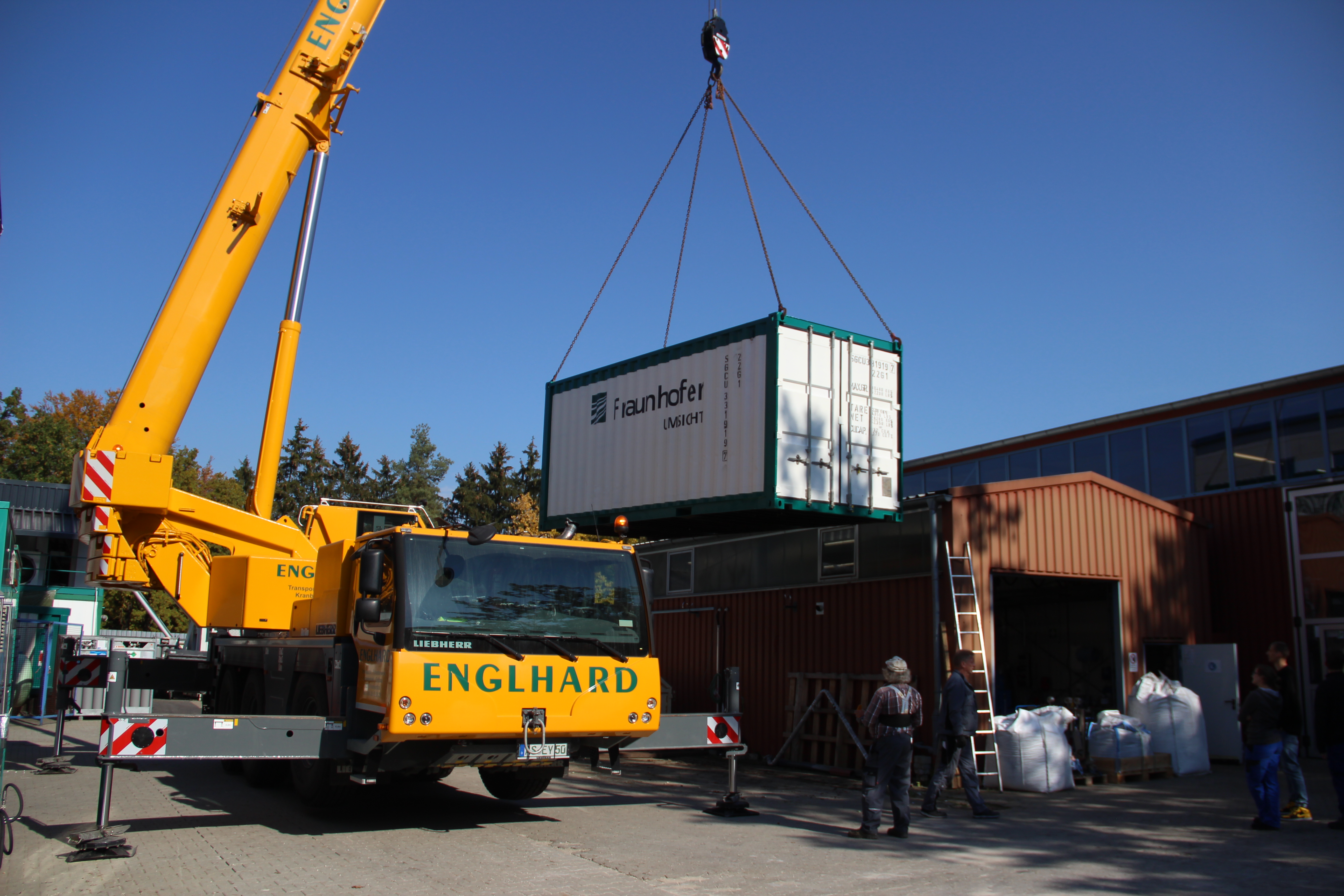German-Chilean Cooperation in Biomass Research
Mobile biomass conversion plant for Chile
For the German-Chilean research project »Semi-mobile Bioenergy from agricultural and forestry residues in Chile and beyond« - in short »SeMoBioEnergy« - funded by the Federal Ministry of Education and Research (BMBF), a plant developed by Fraunhofer UMSICHT was delivered to the project partner in South America.
The project »SeMoBioEnergy« emerged from German-Chilean research cooperation in the predecessor project »ChilNaNuNuKo«. It concentrated on the development of regional biomass utilisation concepts using a location and transport planning model. Various biomass chains were analysed, evaluated and optimised as a project basis for »SeMoBioEnergy«.
Compaction of biomass by means of mobile pre-treatment plants
»SeMoBioEnergy« aims to develop practicable concepts for regional bioenergy chains using residues from agriculture and forestry. The central idea is to use residues from agriculture more efficiently for energy production, to increase local added value and to reduce Chile's dependence on energy imports. Within the framework of the project, various utilisation concepts are being investigated, including a thermo-chemical conversion process developed by Fraunhofer UMSICHT.
Construction of a semi-mobile biomass conversion plant
The TCR technology developed by Fraunhofer UMSICHT is a globally applicable, decentralized solution for the utilization of biogenic residues of various kinds. Thermo-catalytic reforming (TCR) produces renewable fuels from waste biomass, which can replace fossil fuels.
The plant was commissioned at the Sulzbach-Rosenberg site and is now being shipped to Chile as part of the »SeMoBioEnergy« project. Fraunhofer UMSICHT is commissioning the plant there.
Last modified:


